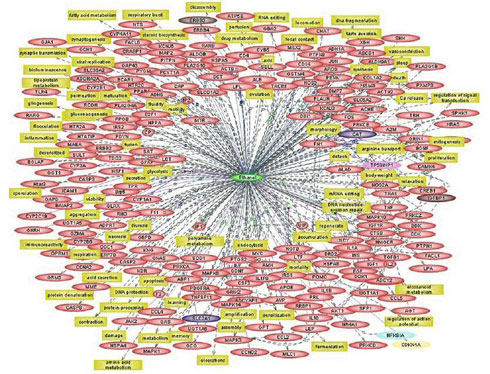

Professor
Department of Biology
Western University
1151 Richmond St. N
London, Ontario, Canada
N6A 5B7
Office: Western Science Center 307
Email: ssingh@uwo.ca
Phone: 519 661-3135
Fax: 519 661-3935

1. Genes determining alcohol preference & avoidance: Studies on strain specific ethanol responsive cDNAs
Alcohol abuse is evident in common mental disorders including alcoholism and schizophrenia. Exhibiting preference for alcohol at an early age is an indicator of the possible future development of alcoholism. The disorder runs in families, but the search for genes involved has remained illusory. Our results on the effect of ethanol on genes have allowed us to hypothesize that “the preference for alcohol is determined by genotype specific effects of alcohol on the expression of specific gene(s)”.
The objectives of this OMHF funded research are to (a) to identify strain-specific-ethanol-responsive (SSER) genes and (b) establish their role in relative ethanol preference (VAC) in mice. Our ultimate goal is the identification of genes from C57BL/6J (ethanol preferring) and BALB/c (ethanol avoiding) mice, and applying that information in the cloning of their human homologues.
The method for identification of SSERs is based on (a) mRNA differential displays (DD) and expression arrays (EA), (b) confirmation of results by RT-PCR and (c) establishing identity by sequencing. The relevance of SSER (genes) in ethanol preference is being established in two stages: co-segregation in F2 and RI lines of the BALB/c and C57BL/6J strains, and the DNA sequence and epigenetic differences between them which are responsible for the SSER(s).
To date, we have identified a total of 10 such SSERs, produced and evaluated VAC on ~500 F2 individuals representing the two extremes of VAC, collected brains following ethanol treatment and isolated their RNA/DNA for analysis. We have also obtained and confirmed (ongoing) VAC on available RI lines and continue to collect their brain tissue for proposed studies. RT-PCR will be used in assessing co-segregation in F2 and RI lines. DNA will be used to identify genetic/epigenetic alterations that account for differences in response to ethanol for selected genes. Promising genes have begun to identify new pathways and novel approaches to establishing the specific role of genes in VAC and associated addictive behaviours.
2. Brain-specific gene expression determining alcohol preference and alcoholism
This research is aimed at the identification of genes that predispose an individual to prefer or avoid alcohol. These genes are critical in such common disorders as fetal alcohol syndrome, alcohol syndrome, alcoholism, and addiction. Given the complexity of such studies on humans, they are best undertaken on animal models, particularly strains of mice. The DBA/2J, A/J, and C57BL/6J mice differ for relative ethanol drinking when given free access to water and ethanol, a trait due to genetic differences among strains. Since such genes are expected to be present in humans, along with the advances in mouse genetics, the strains are highly suitable for such studies.
Our research uses (i) Microarrays for identification of relevant genes and (ii) genetic co-segregation with ethanol preference to identify their involvement in alcohol preference. To date, we have identified ~40 brain-expressed genes that are responsive to ethanol and differ between mouse strains that prefer or avoid ethanol. This research deals with studies on ~20 selected genes for (a) their involvement in alcohol preference (if any), (b) the identification of their human counterparts and (c) the assessment of their mechanisms of action by a variety of approaches (computations, knockouts). Such results are needed to formulate novel treatment and preventive approaches to alcohol abuse, alcoholism, fetal alcohol syndrome, and related major health and societal problems, particularly in our aboriginal populations.